From SALNs to the armed struggle: 4 presidential aspirants faced head-on in the SMNI Presidential Debate
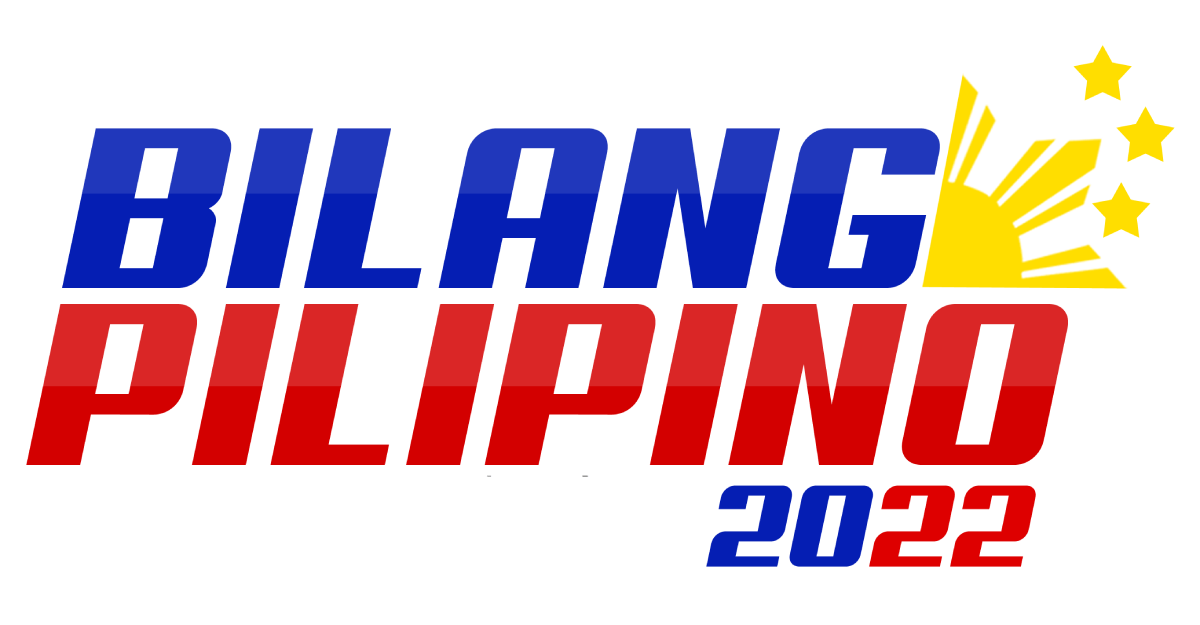
Despite having other popular candidates notably absent, four presidential aspirants took the stage of the Sonshine Media Network International (SMNI) 2022 Presidential Debate to share their stances on issues such as the West Philippine Sea dispute and peace talks with communist rebels, among others.
The three-hour debate, held on Feb. 15 in Okada Manila, is the first forum with other candidates joining former senator Bongbong Marcos. He and his running mate Sara Duterte have been endorsed by Apollo Quiboloy, who owns SMNI.
Vice President Leni Robredo and Manila Mayor Isko Moreno cited prior commitments for their absence from the event, while senators Ping Lacson and Manny Pacquaio declined the invitation for reasons concerning Quiboloy, who is wanted by the U.S. Federal Bureau of Investigation for sex trafficking of children.
SMNI anchors, however, emphasized that the four candidates’ absence would not be a “loss.” “May pa-pride-pride pa kayo kasi,” said Mike Abe during the event’s pre-show.
The night’s panelists included University of the Philippines professor Clarita Carlos, Atty. Rolex Suplico, SMNI Senior correspondent MJ Mondejar, and Manila Times CEO Dante Ang.
Other rivals present include labor leader Ka Leody De Guzman, former national defense secretary Norberto Gonzales, and former presidential spokesperson Ernesto Abella, who are rarely invited to presidential debates and interviews.
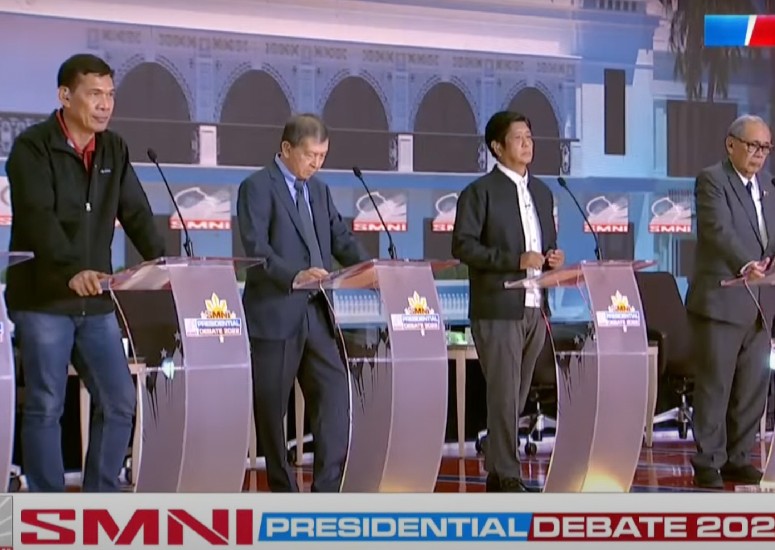
De Guzman, Abella, and Gonzales on:
Food Security and West Philippine Sea
The four candidates said they would all push for further development of agriculture and fisheries. Gonzales also offered the idea of turning to alternative sources of protein like carabao meat.
“Siguro ayusin din natin ang other sources of protein like ‘yung kalabaw. Siguro makikiusap tayo sa Kongreso na payagan na natin kainin yung kalabaw. Hindi natin kinakain ‘yun eh,” he said.
Part of De Guzman’s economic plan is to abolish the rice tariffication law, signed by President Rodrigo Duterte in 2019, which removed the limits on imported rice and caused local prices to drop.
Abella said he would make agriculture a “mega industry” and would set up a board of agriculture investments directly working under the office of the president if seated.
The four also had similar views on the West Philippine Sea dispute, saying they would mobilize a navy and coast guard presence to look after Filipino fishermen.
“Tingin ko dapat gamitin natin pangalan natin sa international tribunal, kampihin natin ang ibang hinaharass ng China sa Southeast Asia para itulak yung mga bansa na signatory sa UNCLOS na sawayin ang China,” De Guzman said.
For his part, Gonzales said the Philippines must regain the respect of China.
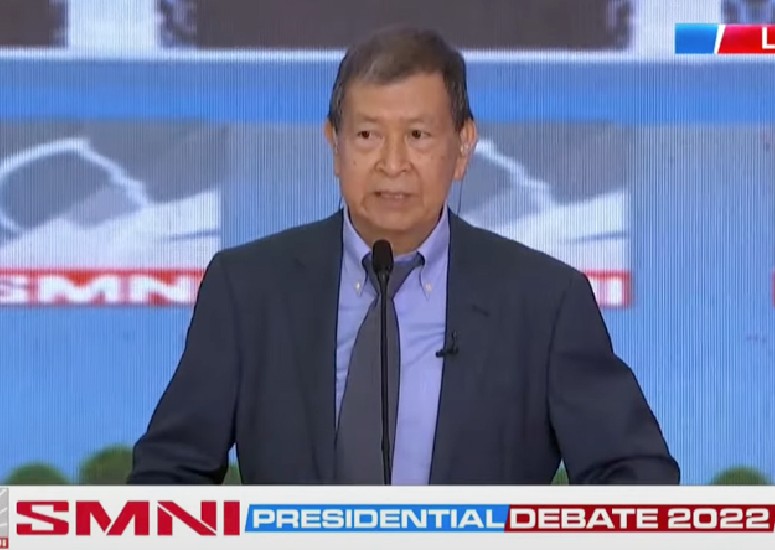
Foreign relations
De Guzman stood out from his rivals with his differing views on foreign policy and armed conflict. The labor leader said one of the first things he would do as president is to revoke the Mutual Defense Treaty between the Philippines and the United States and the National Task Force to End Local Communist Armed Conflict or ELCAC.
“Ang hirap nating magdecision kung parang merong baril na nakatapat sa ating ulo,” he said, calling for the Philippines to align with countries to combat climate change and poverty instead. “Pati yung mga agreement natin sa China, putulin natin ‘yan.”
If senators don’t agree with him on the move, De Guzman would use “people’s initiative” for this, which he said he would start despite panelist Atty. Suplico calling it a “dead letter law.”
He also said that groups like the Communist Party of the Philippines-New People’s Army-National Democratic Front are revolutionaries, not terrorists, while other candidates said they are enemies of the state.
“Di ako sangayon na sila ay terrorista. Sila ay rebolusyonaryong grupo na naghahangad ng panlipunang pagbabago at hustisya,” the labor leader added.
Funding for smaller candidates
In the discussion of how they plan to make their campaign spending transparent, Ka Leody pointed out that smaller candidates like him don’t have the same means and donations as others that can put up billboards in EDSA and air TV ads.
“Wag na tayo magbolahan kasi tingin ko sobra sobra ginagastos ng pulitiko bawat eleksyon,” De Guzman said. “Ang aking mungkahi ko ay ang dapat gumagastos sa bawat pulitiko ay gobyerno dahil gobyerno naman ang naghahanap ng tamang lider.”
“Dahil kung indibidwal ang gumagastos, edi ang ating eleksyon ay magiging eleksyon lamang ng mga bilyonaryo o mga sikat na susuportahan lamang ng mga bilyonaryong korporasyon.”
Gonzalez, who has also been rarely invited to debates agreed with De Guzman on a law that should allow the government to fund aspirants.
Meanwhile, panelist Clarita Carlos said that De Guzman’s suggestion could only come into fruition if the country shifts into a parliamentary system.
“Outside of that, kailangan mo magkalkal ng sarili mong salapi,” Carlos said.
The campaign period officially started on Feb. 8, with candidates’ Statement of Contribution and Expenditures (SOCE) being expected by COMELEC at the end of the campaign.
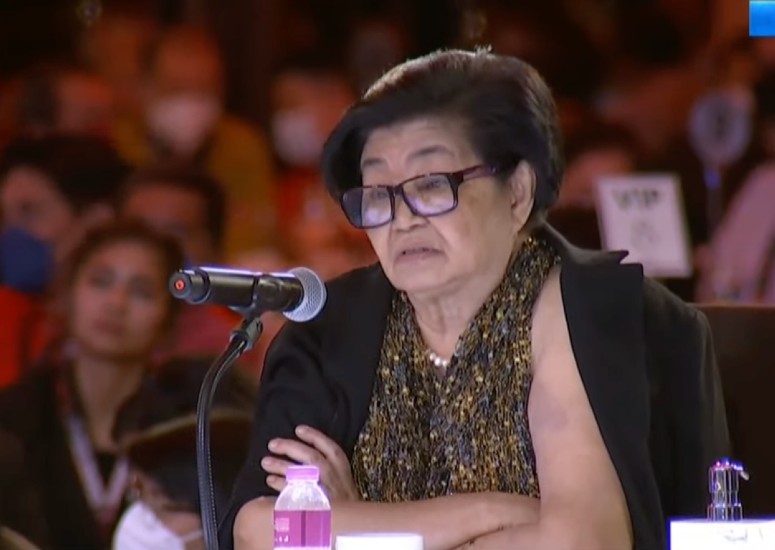
BBM on issuing SALNs
Marcos also took the opportunity to clear his stand on the issuing of the Statement of Assets, Liabilities, and Net Worth (SALN).
In the past, the former senator had expressed hesitation on top government officials releasing their wealth reports, citing that the move could be used by political opponents: "Pag gagamitin lang sa pulitika, wag na lang. ‘Ganun na lang, let’s keep it simple,” he said on Jan. 24.
Marcos went on to backtrack his decision on the same day, with the recent debate now clarifying his decision.
“Para sa akin, hindi problema yun. Hindi lang ako nagsusulat ng SALN for the past six years,” Marcos said, as he has not held a government post since ending his senatorial run in 2016.
“Pero kung ang maging mapalad, eh natural ay kailangan gagawan ng SALN. Sa aking palagay, hindi na kailangan palitan ang batas at nasa sa bawa’t opisyal na ‘yan kung sila ba ay handa na ilabas ang kanilang SALN.”
President Rodrigo Duterte has refused to release his SALN since 2018, with Duterte-appointed Ombudsman Samuel Martires issuing a directive that SALNs are no longer required to be publicly released by officials.
“Kung may kaso na may court order ilabas ang SALN, kailangan talaga ibigay. Sa sarili ko lamang, kapag ako ay susulat muli ng SALN, ito ay gagawin kong public information.”
The labor leader stands his ground
An impassioned De Guzman also had a back and forth on the topic of the armed struggle of workers, with other candidates soon jumping in on the labor leader’s stand.
“Hindi tayo maaring sumang-ayon sa idelohiya na kasama ang armed struggle dahil to change the government means is rebellion at hindi natin pwede pabayaan ‘yan,” Marcos began.
Ka Leody defended that “mangyayari talaga ang pakikibaka at hahantong hanggang sa armadong pakikilaban.”
“Umaabot sa ganun eh dahil kasasayan ng ating bansa ay puro panunupil at gumagamit ng dahas—panahon ni Marcos, panahon ni Duterte, kay Gloria—andaming pinatay. Kaya ang mga tao anong ginagawa para ipagtanggol ang sarili?,” De Guzman said with the late dictator’s son shown on camera chuckling at the statement.
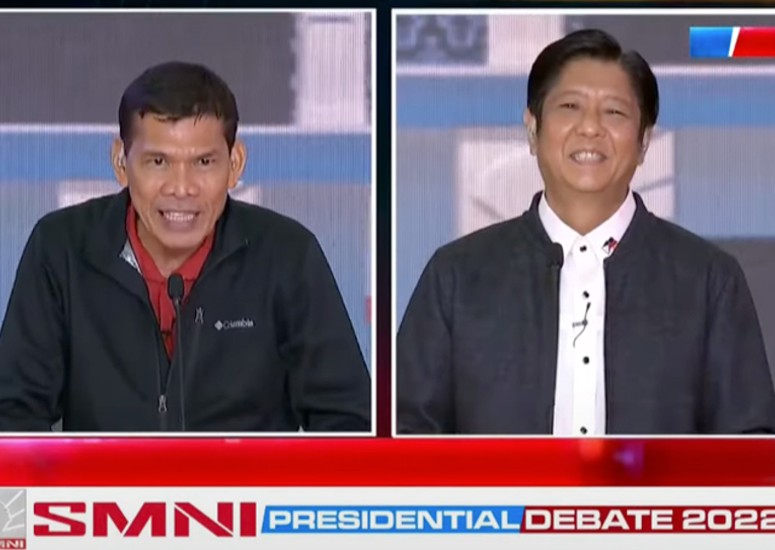
“Kahit anong paliwanag ang gagawin mo ay hindi ako susunod sa idelohiya na may armed sturggle para pabagsakin ang gobyerno. Kahit ano man ang dahilan, wala talaga sa batas,” Marcos said.
“Hindi ako nakapatungkol sa idelohiya, kahit sa manggagawang nagwewelga ayaw namin ng welga, ayaw namin ng rally, pero kung kami ay pinagsasamantalahan ng mga kapitalista, at ginagawa kaming kontraktual, pinipigilan kaming mag union, ayaw dagdagan ang aming sahod, humahantong kami sa welga. Ayaw namin nun pero yun ang nangyayari,” De Guzman answered.
Former defense secretary Gonzales, for his part, said he doesn’t believe in resorting to violence and brought up the fact that communism isn’t illegal in the country.
“Masasabi ko kay Ka Leody, na ‘di lang naman gobyerno ang laging nagkukulang. Both sides maybe. Pero ang pinaka importante ay di dapat gumamit ng dahas,” he said.
Abella, on the other hand, agreed with De Guzman on following through with promises on land reform, recommending debt condemnation “para maibigay talaga yung properties, lupa sa kanila para it’s theirs to use as long as it’s still used in agriculture.”
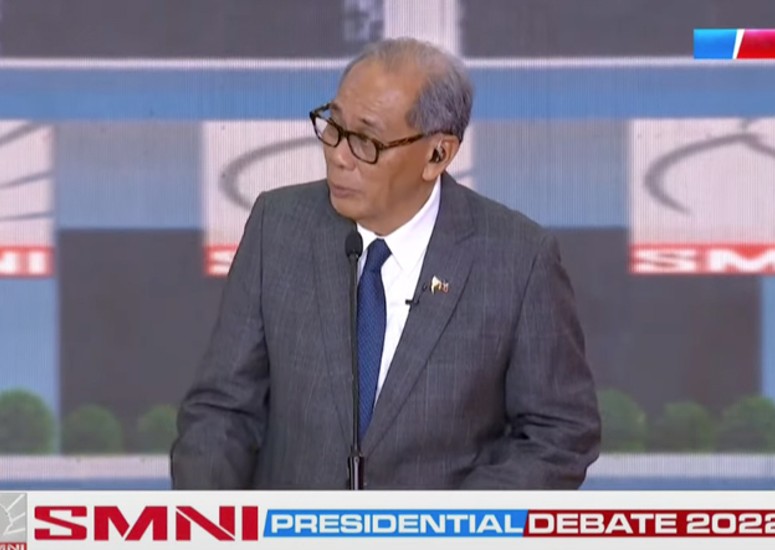
De Guzman stressed that peace talks that have been ongoing for 50 years now haven’t been resolved yet due to a lack of sincerity.
“‘Di naman sincere sa pakikipag-peace talks. Ang gusto lang pasuking ang NPA pero di nireresolve mga problema ng kahirapan,” he said. “Dapat nagsisimula sa honest to goodness intention, di ‘yung parang inuuto lang. Alisan natin nga dahilan para sila ay mag-armas.”


